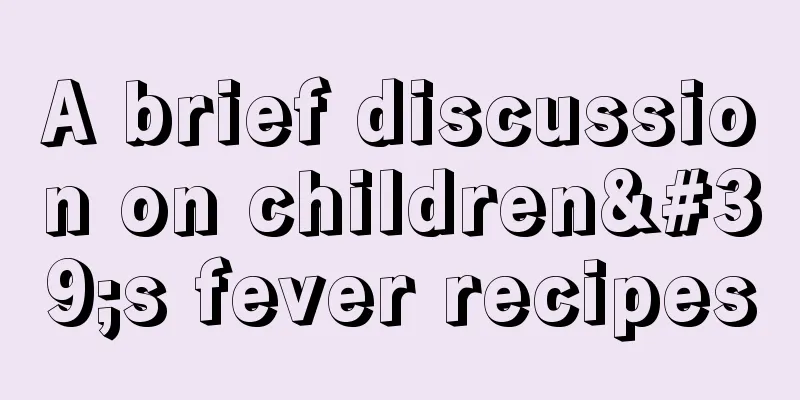Can neonatal encephalitis be cured?

|
Encephalitis is generally caused by viral infection. Newborns suffering from encephalitis will show symptoms such as fever, headache, body pain, nausea, and abnormalities in the nervous system, typically flaccid paralysis of the cervical and scapular muscles. As parents, it is certainly difficult to accept that a newborn's brain has such problems, and their biggest concern is whether it can be cured. So, can neonatal encephalitis be cured? Let’s take a look at the treatment of neonatal encephalitis. Meningitis is an infection of the delicate meninges (the membrane between the skull and the brain), usually as a complication of a bacterial or viral infection anywhere in the body, such as an ear, sinus, or upper respiratory tract infection. Meningitis is a particularly serious illness that requires prompt treatment. If not treated promptly, death or permanent brain damage may occur within hours. Viral meningitis is more serious, but most people can recover completely, while a few have sequelae.Babies with meningitis usually first develop fever, followed by a dark red rash (1-2 mm in diameter) that does not disappear when pressed (press with your fingers for a few seconds). In more severe cases, these rashes can look more like severe abrasions. Many people carry the bacteria that cause meningitis but have no symptoms. Most people will not get this disease, it only affects some people, the reason for which is not yet clear. Meningitis is spread through droplets from coughing and sneezing, as well as close contact in daily life. Once infected, the bacteria can cause sepsis (blood infection) and meningitis (infection of the lining of the brain) in a short period of time. In real life, these two situations often occur simultaneously. If your baby develops a rash that looks like an abrasion and keeps expanding, you should suspect sepsis. Meningitis often presents with these symptoms, along with headache and neck pain.The main treatment is antibiotics, given intravenously or as an infusion in a hospital. Experts say that if the baby shows the above serious symptoms, we must send him to the hospital for treatment immediately. Even doctors are prone to making mistakes. They may see a child who is not seriously ill early in the morning, comfort them briefly, and then send them home. But after a few hours, inflammation develops rapidly in the body and the situation takes a turn for the worse. If your baby is seriously ill and his condition is deteriorating rapidly, this is the most urgent moment. The only way to prevent death and disability is to diagnose quickly and then immediately administer life-saving antibiotics. Vaccines are available to prevent certain types of meningitis. In Australia, babies should receive this vaccine (free of charge) at the age of one. However, if the illness recurs after this, he must be placed under urgent medical observation. What are the causes of meningitis? Bacterial meningitis 1. Bacterial meningitis is caused by infection with certain bacteria. There are three types, namely Haemophilus influenzae type B (HiB), Neisseria meningitidis (diplococcus) and Streptococcus pneumoniae (pneumococcus). About 80% of cases of meningitis in the United States are bacterial. Usually, a small number of healthy people carry these germs in their noses or on their bodies, which do not harm the human body. They are spread through coughing or sneezing. Some studies suggest that people are most susceptible to infection when they have a cold because an inflamed nose makes it easier for bacteria to enter the brain. 2. Tuberculous meningitis: Non-purulent inflammation of the meninges caused by Mycobacterium tuberculosis, accounting for about 6% of systemic tuberculosis. After the Mycobacterium tuberculosis infection spreads through the blood, it implants under the pia mater to form tuberculous nodules. After the nodules rupture, a large number of tuberculosis bacteria enter the subarachnoid space. In recent years, the morbidity and mortality rates of tuberculous meningitis have been on the rise. Early diagnosis and treatment can improve efficacy and reduce mortality.
3. Viral meningitis: mainly some enteric respiratory viruses, such as Coxsackie virus (a virus that causes respiratory diseases, etc.) and the virus that causes hand, foot and mouth disease. Herpes simplex can also cause meningitis. Other types 4. Cryptococcal meningitis: Meningitis can also be caused by fungi. The most common one is Cryptococcus, which is found in pigeons. Healthy people are not susceptible to fungus-related meningitis, but this is not the case for those infected with HIV, the human immunodeficiency virus that causes AIDS. Both viral and bacterial meningitis can be spread through direct contact with the nasal and throat secretions of an infected person. Even healthy people with no symptoms may have these bacteria in their nose and throat. Viral meningitis can also be transmitted through the fecal-oral route. |
<<: Can neonatal meningitis be cured?
>>: There is a red spot on the baby's face
Recommend
How to treat periodontitis in children?
Many parents and friends are worried about their ...
Symptoms of iron deficiency anemia
Anemia is a common phenomenon among women and chi...
What should I do if my child always has a low-grade fever?
If a child's body's resistance system is ...
How to prevent babies from catching colds in spring
In spring, when seasons change and everything com...
How many months does the baby wear pull-up pants
Many parents like to use diapers for their childr...
What should I do if my child has a fever and his palms and feet are cold?
Children's fever is a common problem in life....
Treatment of myocarditis in children
Children are in a period of rapid growth and thei...
Effects of smoke on babies
Smoking is not only harmful to one's own heal...
Is it normal for a baby to have growing teeth first?
When the baby is just born, he will not have teet...
What should I do if my child has a hoarse voice?
Hoarseness occurs not only in adults but also in ...
What should I do if my baby’s belly button bleeds?
Every part of a baby's body is relatively fra...
Common symptoms and care of newborns
We call a newborn baby a neonate. After a neonate...
What foods are good for children's spleen and stomach
During the child's growth and development stag...
What should I do if my 1-year-old baby sneezes and has a runny nose?
When children are young, they have poor physical ...
What is the cause of teething in children?
Sometimes, teething blisters in children are a re...









